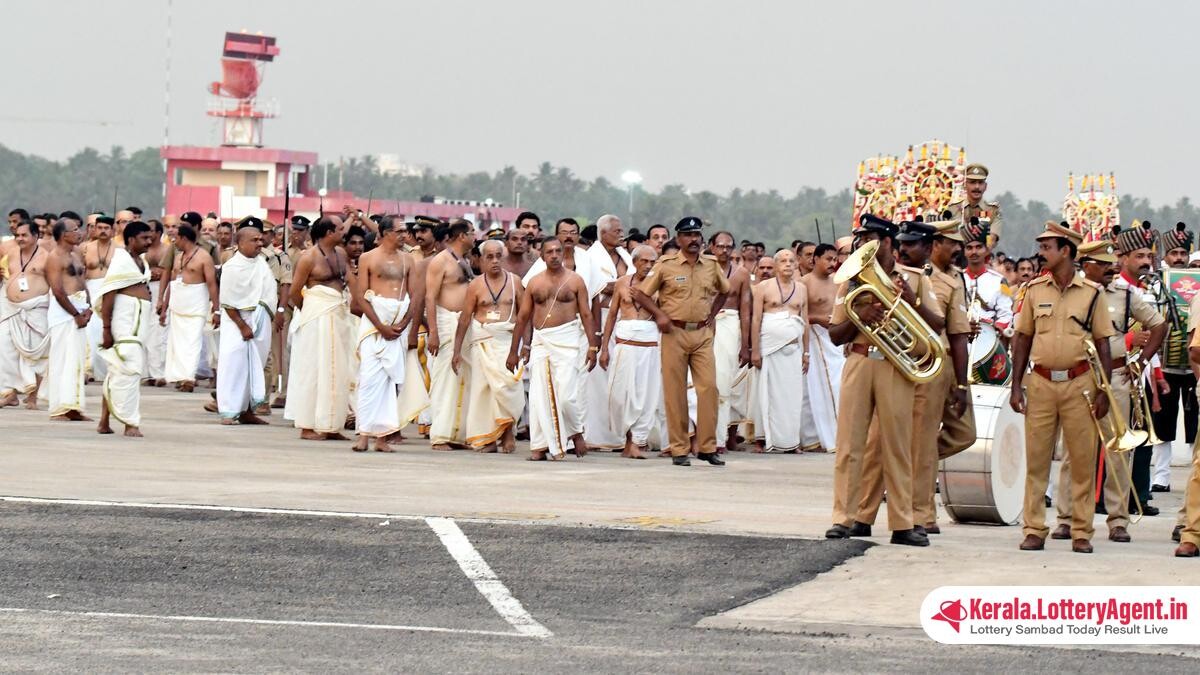
In an announcement that showcases the blend of tradition and modernity, the Thiruvananthapuram International Airport Ltd. (TIAL) has confirmed a temporary suspension of its flight services. The pause, spanning five hours on April 21, is in deference to the historic ‘Painkuni Arattu’ procession from the Sree Padmanabhaswamy Temple, which will pass across the airport’s runway. This decision, made public on April 17, underscores the airport’s commitment to honoring time-honored traditions while ensuring minimal disruption to air travel.
According to TIAL, the halt in airport operations is slated from 4 p.m. to 9 p.m. on the designated day. Passengers and airlines have been forewarned, and the airport authorities have followed due procedure by updating all regarding the rescheduled flight timings, which are accessible through the airlines directly. This is not a one-off event but a biannual occurrence, with the airport having a long-standing arrangement of altering its flight schedules to accommodate the ceremonial passage— a practice entrenched for decades.
This peculiar intertwining of tradition and aviation dates back to a time well before the airport’s establishment in 1932. The Painkuni festival and its associated rituals are deeply rooted in the local culture and have persisted throughout the ages. The procession leading to the Shangumugham beach for the holy idols’ bath demands a path that intersects with the modern runway, illustrating the deep reverence the community holds for this religious observance.
Historians recall that during the airport’s inception, the then ruler of Travancore, King Sree Chithira Thirunal, articulated a clear mandate. The facility would be open to the public for 363 days of the year, reserving two days for the procession in honor of Lord Padmanabha, the principal deity of the royal family and the temple. The continuity of this age-old tradition signifies the enduring respect for cultural heritage amidst evolving infrastructural landscapes.
The stewardship of the airport has seen changes, notably with the takeover by the Adani Group, yet this sacrosanct tradition remains unaltered. To ensure the safe conduct of the religious procession, a NOTAM (Notice to Airmen) is issued well in advance of the runway’s closure. The adhered schedule aligns with the Alpassi festival, occurring in October-November, and the Painkuni festival, taking place in March-April, both deeply entrenched in the local cultural fabric.
Respecting such traditions in the age of relentless advance in air transport throws light on an extraordinary synthesis. It reflects a society that embraces progress without letting go of its cultural identity and spiritual moorings. For the thousands of devotees and the local community, the ‘Painkuni Arattu’ procession is a significant event, and its unimpeded observance speaks volumes about the collective deference to cultural customs.
This scheduled pause at Thiruvananthapuram airport, albeit a brief interruption in its otherwise non-stop operations, stands as a reminder of the harmony that can be achieved between the old and the new. It is a testament to the unique coexistence of a busy international airport with an ancient religious procession, a narrative of balance and respect.
As the city prepares for the procession, both the temple authorities and the airport management are committed to smooth facilitation and minimal disruption. The travelers, airlines, and service staff are all looped into the plan, and operations are adjusted to ensure that tradition can uphold its trajectory even as modern life pulsates around it. The expectation is of another successful event— a confluence of reverence, precision, and cooperation, as has been the custom for years.












